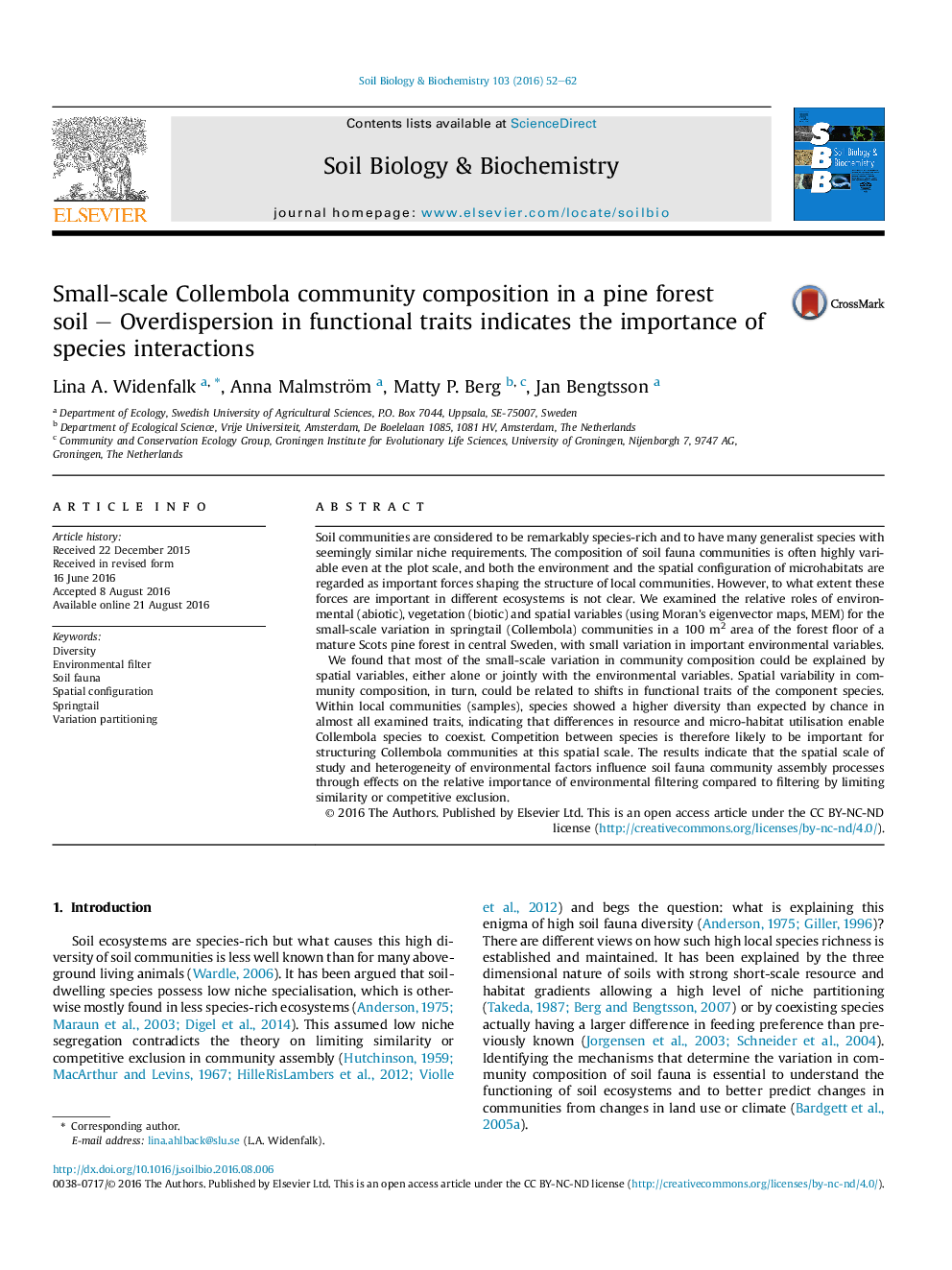| Article ID | Journal | Published Year | Pages | File Type |
|---|---|---|---|---|
| 8363187 | Soil Biology and Biochemistry | 2016 | 11 Pages |
Abstract
We found that most of the small-scale variation in community composition could be explained by spatial variables, either alone or jointly with the environmental variables. Spatial variability in community composition, in turn, could be related to shifts in functional traits of the component species. Within local communities (samples), species showed a higher diversity than expected by chance in almost all examined traits, indicating that differences in resource and micro-habitat utilisation enable Collembola species to coexist. Competition between species is therefore likely to be important for structuring Collembola communities at this spatial scale. The results indicate that the spatial scale of study and heterogeneity of environmental factors influence soil fauna community assembly processes through effects on the relative importance of environmental filtering compared to filtering by limiting similarity or competitive exclusion.
Keywords
Related Topics
Life Sciences
Agricultural and Biological Sciences
Soil Science
Authors
Lina A. Widenfalk, Anna Malmström, Matty P. Berg, Jan Bengtsson,
